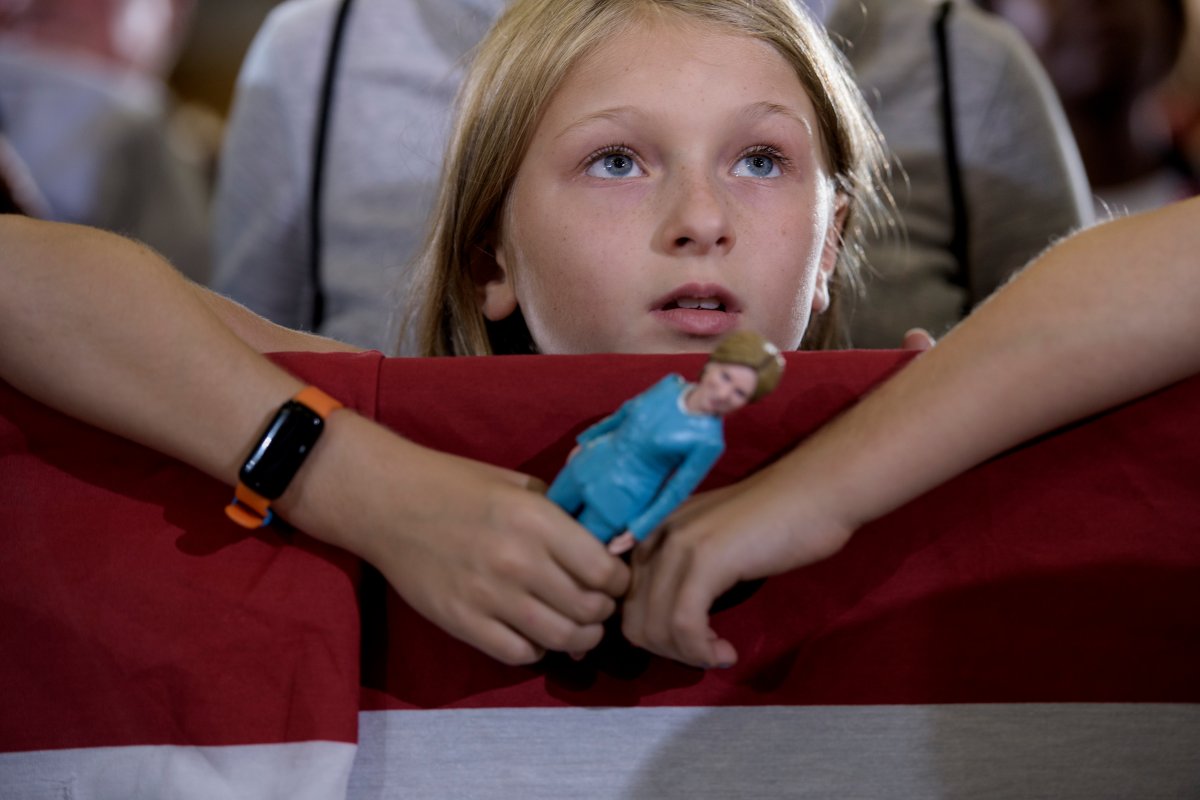Jill Singer, like many parents, had the tough task Wednesday morning of telling her five-year-old son that Hillary Clinton (his presidential candidate-of-choice) lost the election to Donald Trump.

“He burst into tears,” the New York mother wrote on Facebook. “He may not comprehend the intricacies of the election, but he understood that an injustice had been done.”
She admits what’s hardest for her is making sense of “what really failed in this election.”
READ MORE: 6 ways to get over your 2016 U.S. election hangover (or despair)
CNN contributor Van Jones foresaw the mom’s predicament during Tuesday’s election coverage, as it became clear Trump — who’s been accused of sexual assault and discrimination against minorities like Mexicans and Muslims — would become the next president of the United States.
“It’s hard to be a parent tonight for a lot of us,” Jones said. “You tell your kids, ‘Don’t be a bully.’ You tell your kids, ‘Don’t be a bigot.'”
READ MORE: 90 most shocking things Donald Trump said during the campaign
“You tell your kids, ‘Do your homework and be prepared.’ And then you have this outcome.”
“You have people putting children to bed tonight, and … they’re afraid of, ‘how do I explain this to my children?'”
WATCH: CNN contributor gets emotional as he discusses the “whitelash” of Republican Donald Trump’s election

Address concerns, but be mindful of age
While there’s a big chunk of the population celebrating Trump’s victory, Global News spoke to parenting experts to get their views on how to help those who hoped for a different result.
They stressed the importance of talking to your children about the election results in an age-appropriate manner.
Maturity levels vary. But generally, for young children under 10 you’ll want to focus on maintaining their sense of security, says Toronto registered psychologist Oren Amitay.
They can pick up on your anxiety or hear things at school that will make them think the world is “a scarier place now,” Amitay explains.
“Too many people are going to get wrapped up in the fear and will infect their kids with that fear. Focus on the positive.”
If you disagree with the election results, he suggests telling a younger child: “It’s unfortunate what happened in the States, but it’s not going to have a direct impact on you.”
Older children can be told about potential consequences of Trump’s election on things like women’s rights, the environment and economy.
READ MORE: What President Donald Trump will mean for Canada
Encourage them to ask questions. Your job is not to indoctrinate kids, Amitay says, but have healthy discussions that teach critical thinking.
Regardless of how you feel, don’t say something like, “Trump is a bad man in the United States.” Your little one may not even realize what or where the United States is. You don’t want them worried about some “bogeyman” under their bed, Amitay cautioned.
Nor do you want to dismiss their worries.
“Everything can be turned into a learning experience.”
Be honest
Vancouver-based psychiatrist Shimi Kang agrees.
She had to run through all of this with her 11-year-old son Tuesday night as they watched the election results together. The pre-teen asked her, “but what about all the things he said?”
It’s fine to tell kids certain comments Trump made are not reflective of your family’s values, she says.
When discussing sensitive topics such as this, Kang believes there are always two key things to strive for: truth and optimism.
The truth, as she suggests concerned parents explain to their kids, is that, yes, Donald Trump is going to be the next president. It was a tough race, and it’s a complicated system.
You could also acknowledge that “we don’t know what he’ll do as president,” and if people aren’t happy with him, they’ll get another chance to vote for a new leader in four years.
Older kids may also be interested to know who voted for Trump, and that his voters don’t all necessarily share his views on everything.
Some may have just wanted a change.
“In the end, democracy is a system that is seasonal. It’s not a perfect system, but it’s the best system that we know of,” Kang recommends telling youth.
Be optimistic
“There are checks and balances in the system …There will be decisions made by a broad number of people.”
Point to the unity Trump called for in his victory speech, Kang says. Let them listen to Hillary Clinton’s concession speech, as well, in which she tried to empower young voters.
WATCH: Hillary Clinton addressed young girls in her concession speech: “Never doubt you are valuable, powerful and deserving”
If you’re worried about how America’s decision may impact causes you care about, let that motivate you into joining a group or volunteering.
“Take action,” Kang urged.
That’s exactly what Singer hopes to do.
She’s already put out a call on Facebook, asking for fundraiser suggestions.
“So that all of us who are feeling powerless can do something constructive and good.”
For more tips on how you can deal with your own election despair, click here.







Comments